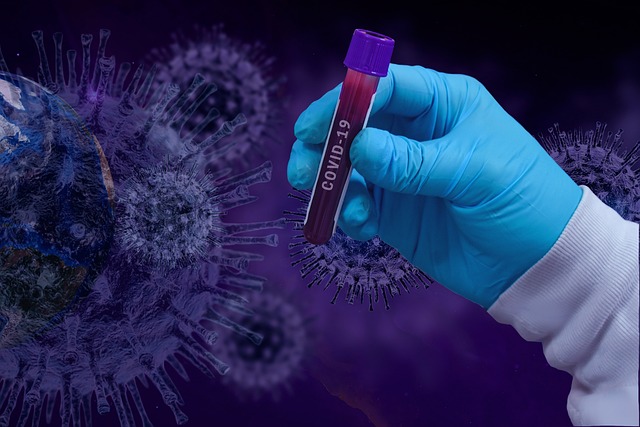Social cohesion and loneliness are associated with antibody response to COVID-19 vaccination
New research led by SASHlab Director Professor Stephen Gallagher found that lower neighborhood cohesion was associated with antibody response to the COVID-19 vaccine. Lower social cohesion also made people feel lonelier, and this was an additional factor in reducing antibody responses to the vaccine.
This study is a classic case of mind-body medicine, whereby our feelings/emotions generated by interacting with our social worlds can influence our immune system.
Antibodies are a central component of our adaptive immune system’s ability to fight infections, including COVID-19. As we have learned during the current pandemic, COVID-19 vaccines were part of the global strategy to combat COVID-19. Having the vaccine was important because the antibodies produced after a vaccination offered protection against hospitalization and death. However, when people do not produce enough antibodies after a vaccine, they are often vulnerable to infection or reinfection, so we were encouraged to receive booster vaccines.
The influence of factors such as stress on our immunity, including the antibody response to vaccination, is well established. Research has found that chronic stress has a negative impact on our immune system, increasing our vulnerability to infections, increasing levels of inflammation but also reducing our ability to produce antibodies after vaccinations.
In contrast, better quality social relationships have been found to increase immunity (e.g., lower levels of inflammation) and increase antibody levels after a vaccine. As we have seen during the COVID-19 pandemic, stress was omnipresent, from managing multiple lockdowns, job losses, increased social restrictions and lower social participation, as well as issues of misinformation and public trust coming to light, all which created a sense of social stressors.
Therefore, given the negative impact of stress on our immune system and, in particular, the reduction of the antibody response to vaccines, in addition to COVID-19 antibody responses being a critical feature of the success of the vaccination, we wanted to see if social stressors such as social cohesion, that is, lower trust in neighbors, fewer neighborhood connections, and feelings of loneliness had a negative impact on our antibody response to those vaccines.
We focused on social cohesion as a key predictor of immune responses.
For example, during the initial lockdowns, the feeling of being together was a frequently used mantra. We had ’clap for carers’ in the UK, Italians singing from their balconies, Dubliners playing bingo on their flats, all of which increased social cohesion and public trust. These feelings of social cohesion and trust were short-lived; something UK researchers now call the ’Dominic Cummings effect’ . Similar levels of declining trust were also observed in the US during these periods. Along with this, lockdowns brought social risks such as reduced social interaction and increased risk of loneliness.
How did we do this?
Using data from more than 600 people who participated in the UK’s Understanding Society COVID-19 Antibody Study in March 2021.
Participants were sent a blood sampling kit and asked to provide a blood sample and had to confirm whether they had the COVID-19 vaccine, how many doses, whether they had the infection, and whether they had completed a survey that captured the social ratings. cohesion and loneliness.
The blood samples were then sent to a laboratory for antibody analysis and the data was combined with the survey data.
We found?
We found that participants who reported lower levels of social cohesion had a poorer antibody response to the COVID-19 vaccine ; Those who felt less connected to their neighborhood, had less trust in their neighbors, and felt unsupported or less similar to their neighbors produced fewer antibodies compared to those who reported greater social cohesion. Additionally, those who reported lower social cohesion also tended to report feeling lonelier and this, in turn, reduced their antibody response.
What does this all mean?
Given that the pandemic is still ongoing and vaccination is a central strategy for dealing with COVID-19, this study highlights that external factors such as trust, connections and loneliness, which are not part of our immune system, are! really important to him! Furthermore, social cohesion and loneliness are malleable and can be harnessed to improve vaccine responsiveness. Furthermore, these results once again highlight the relevance of public trust and social cohesion to the success of our response to the pandemic.
















